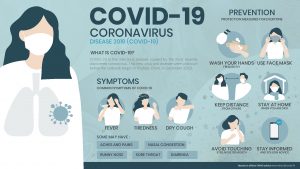Living with an addiction can be horrific. Your body believes it’s dependent on something that it doesn’t actually need and so manufactures all kinds of problems for you throughout the day, knowing that eventually, you’re going to break down and soothe your frustrations and pain with what you’re addicted to. If you’ve been addicted to something for a while, you might be ready to take on the challenge of overcoming your addiction. The following will explore some of your options and data-backed solutions to addiction.
Table of Contents
Acknowledge The Addiction
This part is, for many people, the hardest. Part of addiction is the crafty way the mind tricks people into being oblivious to their addiction. After all, if you see that there’s a problem, you might do something about it, and since your body believes it must get whatever it is you’re addicted to to survive, it doesn’t want you catching on. There are multiple levels to this, both internal and external. Admitting to yourself that there’s an addiction present is all that’s required, but many people who have close friendships or familial relationships might want to tell those they love about the situation as well. Don’t be surprised if it takes other people time to acknowledge the addiction; they might even make excuses to you on your behalf, trying to reason away the idea that you’re addicted to something.
Understand That Every Addiction Is Different
Of course, every person’s addiction is slightly different. It’s a learned behavior that resulted from a combination of physical conditions, emotional traumas, mental struggles, and unhealthy environments. Reaching out to a licensed addictions counselor or seeking out a drug rehabilitation center might be the right course of action for you if you aren’t sure where to begin. A trained professional will be able to walk you through the specifics of your addiction and help you discover the emotional undercurrents that will need to be addressed if you are to move on from your addiction.
Realize That The Thing Your Addicted To Isn’t The True Problem
Addiction is terribly understood by the masses and even by those who are struggling with it. Often people look at whatever it is that a person is addicted to (shopping, eating, sex, gambling, drugs, alcohol, etc.) as the cause of the addiction. This is the same logic as looking at the fruit flies gathered around a rotting banana and saying the fruit flies are responsible for the banana. Addiction is a coping mechanism developed to help a person obtain relief. If you don’t look at what it is you want relief from, you won’t be able to combat the addiction long term.
Become Aware That Willpower Is Not Enough
Willpower isn’t the only thing going on when it comes to addiction; despite this, you’ll likely encounter people talking about willpower as if it’s the only thing that matters. Once you understand that addiction is a method of coping with some form of extreme discomfort or distress, you’ll quickly realize that if you use willpower to overcome, let’s say, smoking cigarettes, the discomfort will still be there, and your body and mind will find another path of soothing it (another addiction). All the willpower in the world isn’t going to help you heal the source of distress in your life. Awareness and self-kindness are needed for that.

Learn How To Care For Yourself
In addition to whatever therapies and internal searching and healing is going on, you’re likely going to have to learn how to better care for yourself. This involves meeting your needs now (food, safety, warmth, cleanliness, creative outlets, boundaries, connection, etc.) and the needs you didn’t have met in your childhood. Part of this will include addressing self-limiting beliefs about what things you deserve and can have. This is a lengthy process whereby negative thoughts will likely arise (something like: I’ll never be able to afford healthy food), and you’ll have to go through the discomfort of proving these thoughts wrong. Your thoughts aren’t always correct (in many cases, they’re primarily incorrect), but boy, oh boy, does your mind hate getting proved false. You’ll likely find that you’ve had to silence your needs for so long that you don’t hear them anymore, and part of this process will involve learning to listen to your body. For example, if you’ve lived in poverty, you’re probably excellent at ignoring the sensation of hunger. You might need to feed yourself at the same time every day for months before you will begin to notice the feeling of hunger.
The above tips should help you open the door to your healing journey. That’s what overcoming addiction is actually about, healing your unaddressed wounds and learning to care for yourself so that those kinds of wounds don’t happen again.
Featured Photo by Inspa Makers on Unsplash




